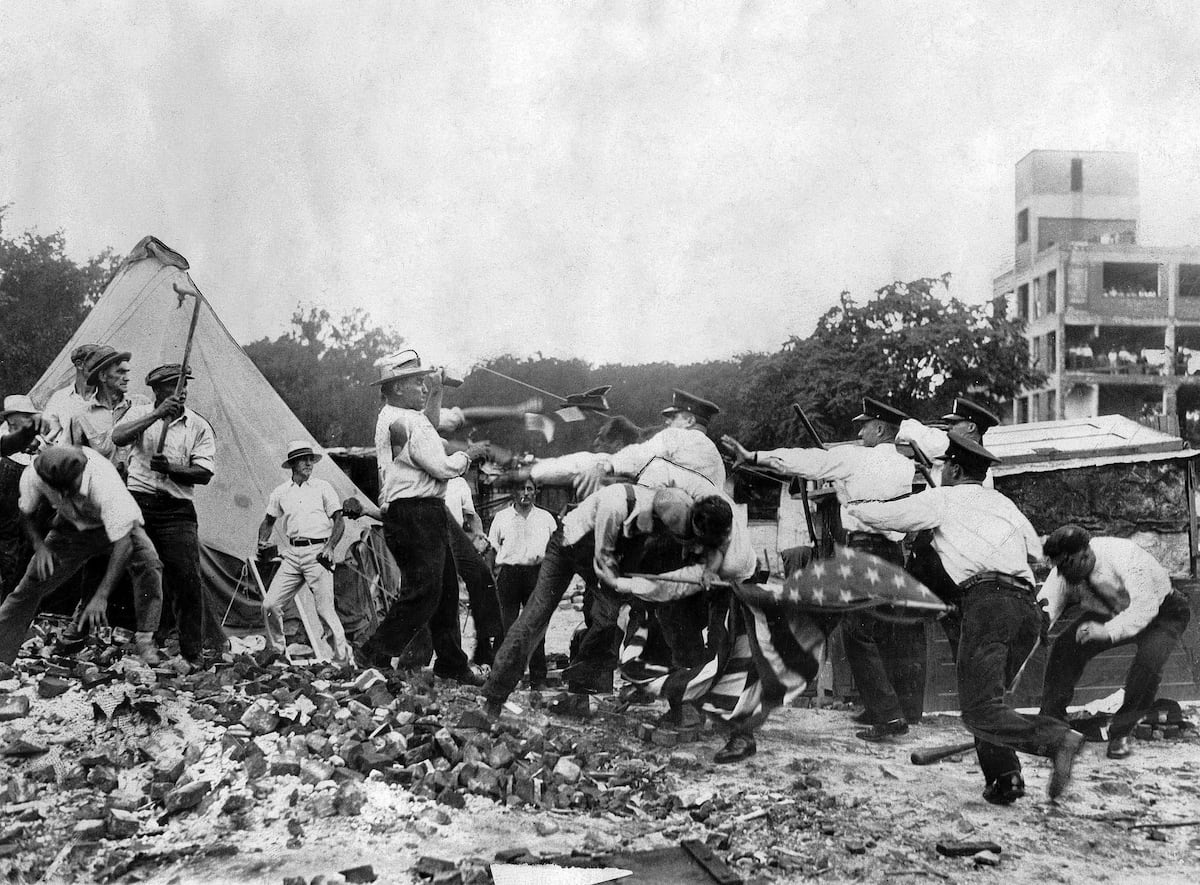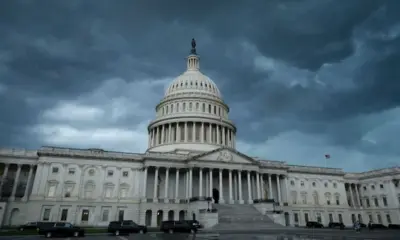Lifestyle
Army Confronts Bonus Army: A Crisis in Washington, 1932

On July 28, 1932, U.S. Army troops under the command of Major General Douglas MacArthur forcefully evicted the Bonus Army, a group of approximately 20,000 World War I veterans and their families, from their makeshift encampments in Washington, D.C. This confrontation, marked by military might and escalating tensions, ultimately resulted in the deaths of three individuals and injuries to over fifty more, raising critical questions about the government’s treatment of veterans during the Great Depression.
The Bonus Army had gathered in the capital to demand immediate payment of a bonus they were promised for their service during the war. Originally authorized by Congress in 1924, the bonus was set to be paid in 1945, but with the economic hardships of the Depression, many veterans sought their entitlements sooner. They marched for weeks, occupying public spaces and creating a shantytown along the Anacostia River. Despite their peaceful protests, the situation deteriorated as government officials viewed their presence as a threat.
Escalation of Tensions
On the morning of the eviction, troops assembled in a show of force. George Patton, another prominent military leader, led cavalry units, while infantry soldiers prepared to advance. The scene was surreal as the military displayed heavy equipment, including five old tanks from World War I. Hundreds of onlookers watched from the sidewalks, unaware of the impending violence.
As the troops approached, the atmosphere shifted dramatically. Some veterans, sensing the hostility, began to throw rocks and bottles. In response, MacArthur ordered his men to don gas masks and unleash tear gas upon the crowd. This aggressive approach quickly turned the situation chaotic, forcing many veterans to flee. Troops clashed with the remaining demonstrators, and an officer was injured during the melee.
Despite the chaos, MacArthur maintained a level of discipline among his troops. He later described the operation as a necessary response to what he perceived as a threat to government authority. His actions, however, sparked outrage among the public and led to widespread condemnation of the military’s heavy-handed tactics.
Political Fallout and Public Response
The political implications of the eviction were significant. President Herbert Hoover had initially ordered the evacuation under the pretext of restoring order, but the violent response from the military led to a public relations disaster. Many Americans viewed the government’s actions as an affront to the very veterans who had served the nation.
Hoover and MacArthur believed that the Bonus Army was infiltrated by subversive elements, including Communists. This belief was largely unfounded, as post-event investigations revealed that over 90 percent of the marchers were veterans. Nonetheless, the perception of a potential insurrection fueled the administration’s resolve to act decisively.
The fallout from the eviction contributed to Hoover’s declining popularity and the eventual election of Franklin D. Roosevelt in November 1932. Roosevelt’s campaign capitalized on the public’s discontent, promising more supportive measures for the struggling populace. His administration later created the Civilian Conservation Corps, which provided employment for many veterans.
In subsequent years, the event would be remembered as a dark chapter in American history, symbolizing the government’s failure to address the needs of its veterans during a time of crisis. The soldiers who had once fought for their country were met with force when they sought assistance, leaving an indelible mark on the national consciousness.
Ultimately, the Bonus Army incident exemplifies the clash between civil rights and government authority, highlighting the struggles faced by those who served in the military and the dire economic conditions of the Great Depression. The legacy of that day continues to resonate, reminding society of the importance of supporting veterans and addressing their needs with dignity and respect.
-

 Technology5 months ago
Technology5 months agoDiscover the Top 10 Calorie Counting Apps of 2025
-

 Health2 months ago
Health2 months agoBella Hadid Shares Health Update After Treatment for Lyme Disease
-

 Health3 months ago
Health3 months agoErin Bates Shares Recovery Update Following Sepsis Complications
-

 Technology4 months ago
Technology4 months agoDiscover How to Reverse Image Search Using ChatGPT Effortlessly
-

 Technology1 month ago
Technology1 month agoDiscover 2025’s Top GPUs for Exceptional 4K Gaming Performance
-

 Technology2 months ago
Technology2 months agoElectric Moto Influencer Surronster Arrested in Tijuana
-

 Technology5 months ago
Technology5 months agoMeta Initiates $60B AI Data Center Expansion, Starting in Ohio
-

 Technology5 months ago
Technology5 months agoRecovering a Suspended TikTok Account: A Step-by-Step Guide
-

 Health4 months ago
Health4 months agoTested: Rab Firewall Mountain Jacket Survives Harsh Conditions
-

 Lifestyle5 months ago
Lifestyle5 months agoBelton Family Reunites After Daughter Survives Hill Country Floods
-

 Technology4 months ago
Technology4 months agoHarmonic Launches AI Chatbot App to Transform Mathematical Reasoning
-

 Technology3 months ago
Technology3 months agoUncovering the Top Five Most Challenging Motorcycles to Ride





















